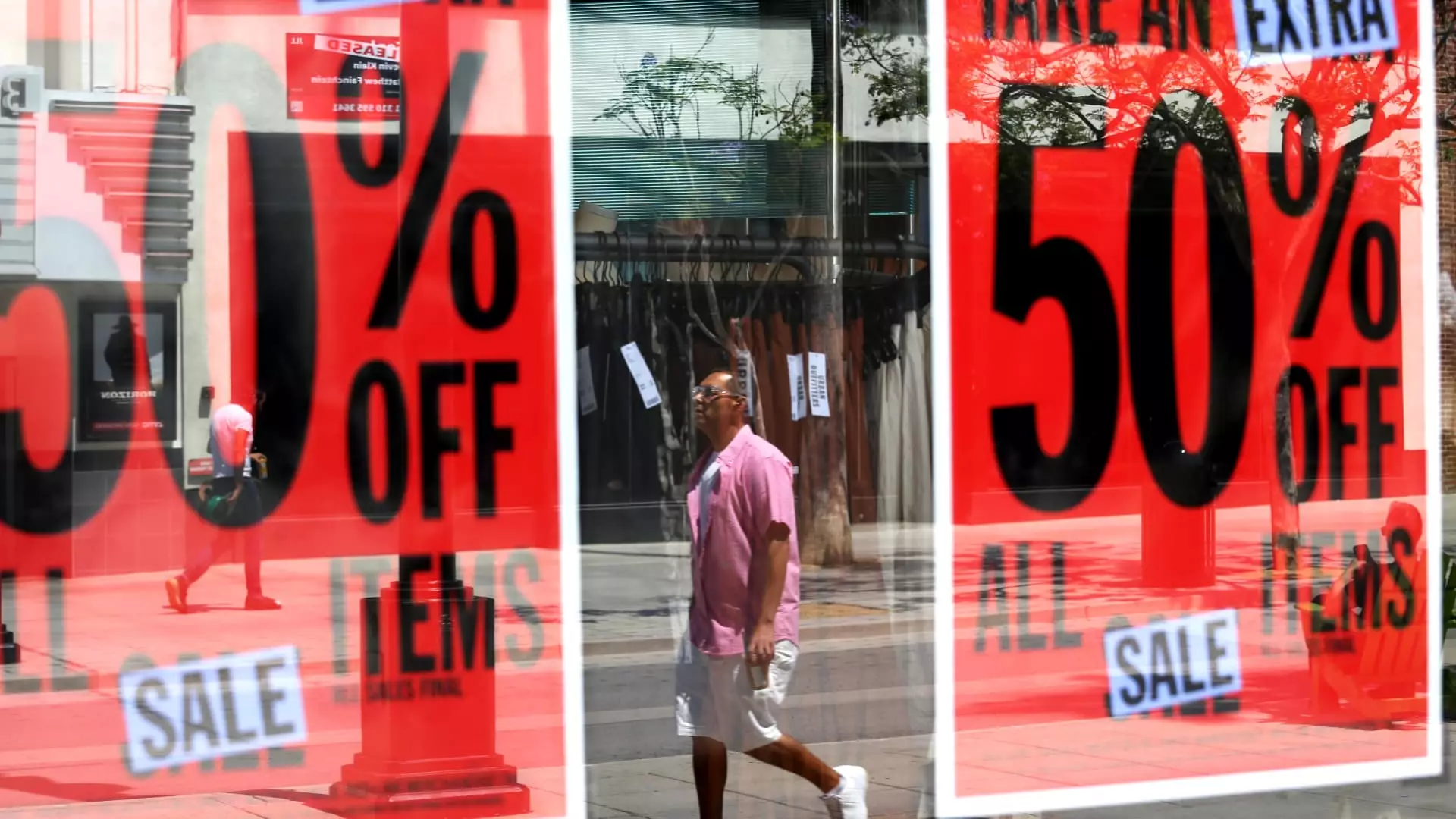In an unpredictable market landscape, retailers are finding themselves under immense pressure due to the ripple effects of President Donald Trump’s trade war. The volatility introduced by steep tariffs on various imports has pushed many brands into a defensive stance, transforming their marketing strategies into desperate attempts at staving off potential financial crises. Amid uncertainties, businesses have resorted to urgent appeals to consumer psychology, urging shoppers to act fast, lest they be caught in a surge of price hikes driven by government tariffs.
Retailers are not merely strategizing; they’re practically begging consumers to buy now. The fear of impending market strain, stoked by tariffs that can swing as high as 145%, has created a race against time. Brands like Bare Necessities and Fashion Nova have leaped into the fray, lacing their promotions with stark warnings about future price increases. While it’s a savvy business move in one light, it’s also a sign that the foundation of consumer confidence is crumbling. Essentially, businesses are trumpeting a sort of urgency that sheds light on an existential crisis: a landscape where consumers may start to retreat due to fear of rising costs, driven by policies beyond their control.
Marketing in a Turbulent Environment
The obnoxious blend of urgency and desperation that retailers now wield in their marketing pitches feels almost disingenuous. For instance, Bare Necessities’ “pre-tariff sale” epitomizes a distress indulgence wrapped in a peppy ribbon. By offering staggering discounts in the name of avoiding tariffs, the brand draws consumers into a frenzy over saving money, although one has to wonder whether this kind of gimmickry will work in the long run. Are consumers savvy enough to see through this smoke and mirrors, to realize they’re essentially being used to prop up a failing market?
Moreover, retailers like Beis have taken to outright humor, declaring, “This tariff situation is a complete dumpster fire, and we’re all getting burned.” While humor can indeed soften the blow of bleak realities, it may also signal that brands are grappling for survival rather than stability. This situation raises an interesting dilemma: while humor may disarm potential customers, does it not also risk alienating those who are tired of constant instability in commercial narratives? The political implications of such uncertainty cannot be dismissed; they are embedded deeply in consumer psychology and purchasing power.
Financial Fragility and Survival Tactics
The consensus among retail analysts is that consumer spending is on the brink of decline, a sentiment shared by experts like Sonia Lapinsky, who emphasize the urgency for brands to bolster their financial resilience before demand plummets. The glaring disparities between larger retail entities and small brands are striking. Larger companies such as Target or Walmart possess the ability to diversify their supply chains across various global platforms, allowing them to buffer against the harsh realities of tariffs. In comparison, smaller businesses are navigating treacherous waters with limited options. This disparity speaks volumes about the potential fallout from the ongoing trade conflicts; the little guys may not just face tough challenges, but existential threats to their very survival.
Furthermore, the reliance on escalating discounts may backfire, leading to a consumer expectation for perpetual sales rather than for actual value. While this might produce a short-term cash influx for retailers, it poses a larger question: Can brands sustain profitability in a climate increasingly characterized by urgency and desperation? As price declines become synonymous with impending tariff spikes, retailers could find themselves in an untenable cycle where fear drives consumer behavior rather than genuine need.
The Psychological Weight of Tariff Conversations
In the realm of commerce, nobody wants to take a stand on politically charged issues like tariffs; that’s a recipe for backlash. This philosophy feels especially prevalent among brands seeking to navigate the choppy waters of consumer sentiment. Professor Barbara Kahn’s insights reveal a clear trend: companies strategically try to minimize risk by avoiding political associations. They dance around the fact that tariffs are potent economic tools deeply interwoven with political beliefs, showcasing a rather uncomfortable reality about modern retailing — that businesses can no longer afford to operate in isolation from the political narrative.
As consumers are fed blockbuster warnings about potential shortages and rising prices, one must wonder: will they ultimately falter under this weight? Undoubtedly, they want to save money and secure their next purchase, but this frenetic atmosphere could lead to irrational spending decisions, fostering a cycle of panic buying that reflects deeper societal anxieties. The implications stretch far beyond retail into the very fabric of consumer behavior in politically charged climates.
In these confusing times, retailers are frantically steering their ships while each wave threatens to capsize them. They are fumbling to appease an anxious consumer base, all while grappling with the unpredictable fallout from trade policies that seem to change daily. The practices they adopt now will shape not only their immediate future but will also leave lasting imprints on the broader consumer landscape for years to come.


Leave a Reply